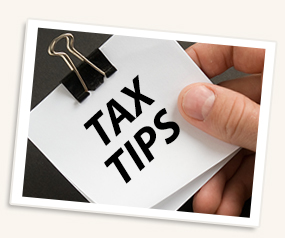Here are some examples of depreciable assets:
- Improvements to the property such as new roof or new kitchen counter-top
- Furniture or appliances
- Automobile for business use
- Shrubbery or fences
Different assets, such as a washing machine and a building, will have different valuable lives and there are different kinds of depreciation that can be applicable, such as:
- straight line depreciation
- accelerated depreciation
2. Repairs
You may deduct the expense of repairs you have undertaken in a certain tax year. Repairs are considered as jobs necessary to keep your rental property “in good working condition”. They do not significantly enhance the value of your property. Repairs also includes painting.
It is essential to understand that every maintenance job you undertake on your property is not considered as repair work. There is a distinction between repairs and improvements. Improvements are known to add value to your property. Improvements cannot be fully deducted in the year they incurred – instead, they must be capitalized and depreciated over their valuable life.
3. Travel Expenses
Landlords are entitled to deduct some local and long distance travel expenses that are related to business. This does not involve commuting expenses – traveling expenses from your home to your office.
If you have your own vehicle for local travel, you can deduct using the standard mileage rate or using the expenses incurred. You can also deduct tolls, parking fees or license fees and taxes.
If you do not have your own automobile, you can deduct your public transportation expenses for business purposes.
4. Interest
You can take your deduction for the interest you have paid on expenses related to business. For instance: You can deduct the interest you have paid on business loans, or mortgage payments and the interest paid on credit cards used solely for business.
5. Home Office
You can take your deduction for your home office if you use an area of your home exclusively as an office for your business. The amount you can deduct is based on the percentage of your home that your office consumes.
6. Other Common Tax Deductions Are:
- Advertising costs
- Rent you paid to others
- Employee Compensation
- Insurance
- Casualty Losses
Whether you are planning to buy your first rental property or simple looking to expand your real estate portfolio, purchasing a new property without financing information can be quite complex. At Rental Home Financing, we take the time to understand your unique situation and provide an unmatched rental apartment mortgage plan that best works best for you.
Feel free to call us at 888-375-7977
 Navigating the tough waters of tax laws in USA can be tricky especially if you are a landlord. If you are a landlord, it is important that you know the type of expenses you can deduct for your rental property to help you reduce your taxable income, which eventually reduces your tax liability. Here are the top tax deductions for landlords.
Navigating the tough waters of tax laws in USA can be tricky especially if you are a landlord. If you are a landlord, it is important that you know the type of expenses you can deduct for your rental property to help you reduce your taxable income, which eventually reduces your tax liability. Here are the top tax deductions for landlords.